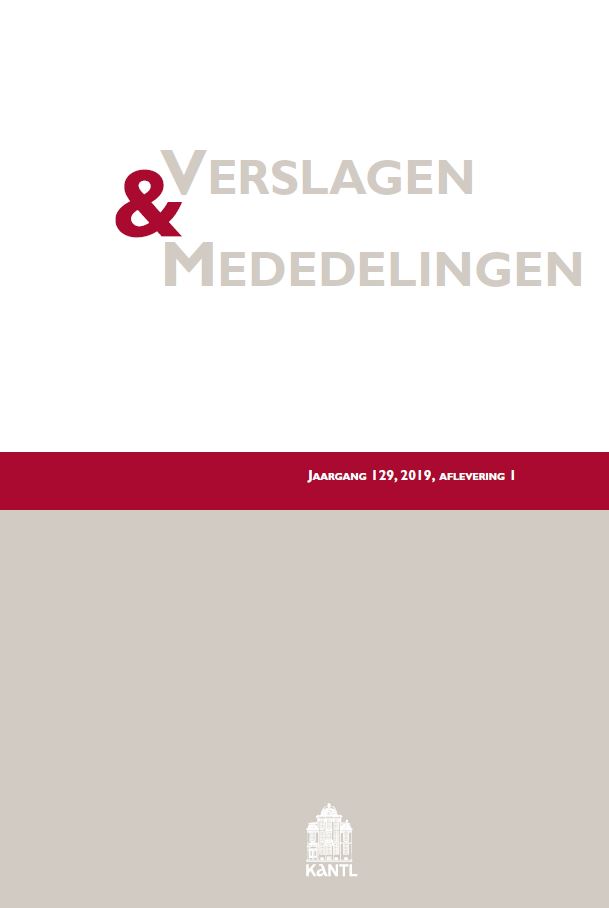De traditie van Janine De Rop in de marge van de sociaal-kritische traditie
Samenvatting
In hun bespreking van de roman De traditie (Janine De Rop, 1963) leggen veel recensenten de klemtoon op het thema van de arbeidersproblematiek. Afgaande op de kritiek en een oppervlakkige lectuur kan de lezer weliswaar constateren dat het socialisme een belangrijk motief vormt, maar tegelijk is de roman geen typisch sociaal-kritisch literair werk. Toch zijn ook de beeldvorming van Janine De Rop, haar verwantschap met andere sociaal-kritische auteurs en het sociaal realisme van de roman aanwijzingen om De traditie binnen de sociaalkritische traditie te plaatsen. Daarom gaat dit artikel na in welke mate de roman te situeren is in de Vlaamse sociaal-kritische romantraditie.
Ik ga na in hoeverre sociale kwesties centraal staan in de roman, neem vervolgens enkele typische sociaal-kritische motieven onder de loep en richt mijn aandacht ten slotte naar de rol van het socialisme.
Uit de analyse blijkt dat er in De traditie wel degelijk heel wat sociaal-kritische elementen terug te vinden zijn, maar die staan niet centraal in de roman. Om die reden kunnen we de roman in de marge van de sociaal-kritische traditie plaatsen.
Abstract
In their reviews, many critics emphasize the social issues in De traditie (Janine De Rop, 1963). Judging by the reviews and a superficial reading, the reader can indeed observe the importance of the motif of socialism, but at the same time the novel is not a typical literary work of social criticism. Even so, the representation of Janine De Rop, her affinity with other authors of social criticism and the social realism of the novel indicate that De traditie deserves a place within the tradition of social criticism. The article goes into the typical aspects of the tradition of social criticism, and examines to what extent they apply to the novel. I analyse the role of social matters and of a few typical motifs of social criticism, and explore the way socialism comes into part. Based on the analysis, we can conclude that De traditie does contain many aspects that are characteristic of the novel of social criticism.
However, those aspects are not central in the novel. For that reason, we can situate the novel in the margins of the tradition of social criticism.
- Auteurs behouden de auteursrechten en geven het tijdschrift het recht van eerste publicatie van het werk onder een Creative Commons Attribution Licentie die anderen het recht geeft het werk te delen onder vermelding van het auteurschap van het werk en de eerste publicatie in dit tijdschrift.
- Auteurs mogen separate, additionele contractuele overeenkomsten aangaan voor het niet-exclusief distribueren van de door het tijdschrift gepubliceerde versie van het werk (bv. plaatsing in een institutionele repository of publicatie in een boek), onder vermelding van de eerste publicatie in dit tijdschrift.
- Auteurs hebben het recht en worden aangemoedigd om hun werk online beschikbaar te stellen (bv. in institutionele repositories of op hun website) voorafgaand aan en gedurende de inzending, aangezien dat kan leiden tot productieve discussies, sneller en meer citaties van het gepubliceerde werk (Zie The Effect of Open Access).


